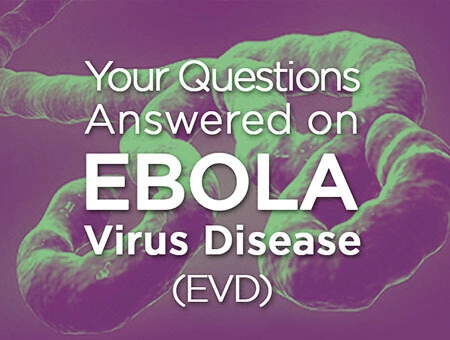Home/Wellness Zone/Sakra Blogs
9th Aug, 2014

Ebola first appeared in 1976 in two simultaneous outbreaks, one in a village near the Ebola River in the Democratic Republic of Congo, and the other in a remote area of Sudan.
The origin of the virus is unknown but fruit bats (Pteropodidae) are considered the likely host of the Ebola virus, based on available evidence.
EVD – Ebola Virus Disease has come into the human body through close contact with the bodily fluids of infected animals such as their blood, secretions or organs. It was reported and documented in Africa while handling of infected chimpanzees, gorillas, fruit bats, monkeys, forest antelope and porcupines found ill or dead in the rainforest. Similarly human to human transmission of the Ebola Virus can only happen through direct or indirect contact with blood and body fluids.
What are the symptoms?
Initial Symptoms
Fever
Intense Weakness
Muscle Pain
Headache
Sore Throat
Followed by:
Vomiting
Diarrhoea
Rash
Impaired kidney & liver function
Some cases – both internal & external bleeding
Lab test results showing low white blood cell, platelet counts and elevated liver enzymes also indicate the virus infection. The incubation period is from 2 to 12 days of time interval from symptoms to infection. It only become contagious once the suspected patient starts showing up the symptoms. EVD can only be confirmed through lab testing.
How can it be prevented?
Only cure or treatment available as of today is to have more and more awareness about the Ebola Virus Disease. Some of the preventive measures that you should aware of are:
Understand the symptoms, transmission and how to prevent it from spreading further
Follow and understand the directives issued by your country’s respective Ministry of Health
Support and guide EVD suspected people in your society or community to seek appropriate medical treatment in nearby healthcare facility
Wash your hands with hand sanitizer or soap after visiting or touching a patient in the hospital or caring for someone at home
People who have died from Ebola should only be handled using appropriate protective equipment and should be buried immediately by public health professionals who are trained in safe burial procedures
You should avoid any sort of contact with high-risk infected animals specifically in the affected areas
Animal products (meat) should be thoroughly cooked before eating
WHO strongly recommends that people seek credible health advice about Ebola virus disease from their public health authority
While traveling be careful and take necessary precautions to safeguard yourself from any sort of infection
Is there any Treatment available?
There’s no specific treatment or medicine available to cure the disease. All the infected people requires intensive supportive care.
They are frequently dehydrated and need intravenous fluids or oral rehydration with solutions that contain electrolytes.
To help control further spread of the virus, people that are suspected or confirmed to have the disease should be isolated from other patients and treated by health workers using strict infection control precautions. Some patients will recover with the appropriate medical care.
Is it safe to travel during this EVD outbreak?
While travellers should always be vigilant with regard to their health and those around them, the risk of infection for travellers is very low since person-to-person transmission results from direct contact with the body fluids or secretions of an infected patient.
WHO’s general travel advice:
Travelers should avoid all contact with infected patients.
Health workers traveling to affected areas should strictly follow WHO-recommended infection control guidance.
Anyone who has stayed in areas where cases were recently reported should be aware of the symptoms of infection and seek medical attention at the first sign of illness.
Clinicians caring for travelers returning from affected areas with compatible symptoms are advised to consider the possibility of Ebola virus disease.
Source: World Health Organisation
Enquire Now
